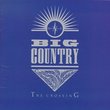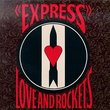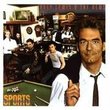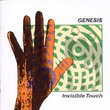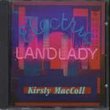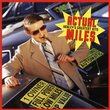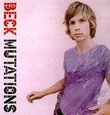| All Artists: Men at Work Title: Business As Usual Members Wishing: 3 Total Copies: 0 Label: Sony Original Release Date: 1/1/1982 Re-Release Date: 10/25/1990 Genres: Alternative Rock, International Music, Pop, Rock Styles: New Wave & Post-Punk, Australia & New Zealand Number of Discs: 1 SwapaCD Credits: 1 UPC: 074643797825 |
Search - Men at Work :: Business As Usual
 | Men at Work Business As Usual Genres: Alternative Rock, International Music, Pop, Rock
Helped immeasurably by the heavy rotation with which its clever videos were greeted by the then brand-new MTV network, the Australian group Men at Work were one of the biggest--and least anticipated--success stories of 19... more » |
Larger Image |
CD DetailsSynopsis
Amazon.com Helped immeasurably by the heavy rotation with which its clever videos were greeted by the then brand-new MTV network, the Australian group Men at Work were one of the biggest--and least anticipated--success stories of 1982. On the strength of two No. 1 singles, the sax-driven "Who Can It Be Now" and the geocentric "Down Under," the band's debut album spent an astonishing 15 weeks at the top of the charts. Bandleader Colin Hay's Sting-like, reggae-influenced singing was welcomed by the emerging video music generation--even if they had no idea what a "Vegemite" sandwich was. --Billy Altman Similar CDs
Similarly Requested CDs
|
CD ReviewsGreatest Album of all Time Jason Decristofaro | Asheville, NC | 01/22/2003 (5 out of 5 stars) "In my opinion, this is the GREATEST ALBUM OF ALL TIME. Colin Hay's smooth vocals, Greg Ham's memorable saxaphone riffs, and the smooth blending of rock, reggae, and new wave music make this album a classic. It also features some of Men At Work's most popular hits, such as Who Can It Be Now and Down Under. This album has very diverse songs; the punk rock sound of Helpless Automatan, soulful reggae of Catch a Star, and the memorable Underground. Do yourself a great favor, and buy this album." It Can Be Men at Work Now! Lonnie E. Holder | Columbus, Indiana, United States | 05/06/2005 (4 out of 5 stars) "Men at Work exploded in the United States in the formative years of MTV. Their inventive music videos and catchy music captured an audience in the throes of a disco music backlash. Men at Work provided a new sound for a new decade and a new medium.
This album begins with one of Men at Work's signature songs, "Who Can It Be Now?" The song has a predominant saxophone that, in combination with Colin Hay's voice, provides a unique sound. The lyrics for this catchy song are somewhat humorous as they initially describe someone who might be us, wanting to be left alone by a salesman or some other unwelcome door knocker. As the song progresses, we realize that the singer's real fear is that they are coming to take him away, and you realize that perhaps the singer is mentally not quite all there. The second song is more serious. "I Can See It in Your Eyes" conveys the strange feelings we sometimes have during changes in relationships. The fast song with its dark undertone speaks of images that we sometimes associate with relationships. The collage of phrases initially appears to be unrelated until you tie them together with how we often think as we replay things that happen over a period of years. The next song is pure play. "Down Under" is yet another signature song for Men at Work. The song appears to have a number of Australian slang words, which makes the song incomprehensible in places. However, the enthusiasm, pace and harmony pull you into this song. The catchy beat and easily remembered refrain make this a song that will have you singing along when it appears on an oldies station, though it is hard for me to believe that the 80s are already classified as oldies. I have always liked the next song, "Underground." However, I must admit that I am clueless as to the precise meaning of the song. The words hint at survival during troubled times, but other references are less sure. I think because I saw "Mad Max" and "The Road Warrior" about the time this album came out that I associate this song with those two movies. Like many other Men at Work songs, the music is catchy and you want to sing along, but the lyrics are too hard to remember without memorizing them. Men at Work rarely created songs that, in retrospect, were throwaway songs. However, "Helpless Automation" may well be such a song. The music is reasonably good, but the lyrics seem like something Devo might have been singing rather than Men at Work. The following song, "People Just Love to Play with Words," is also one of Men at Work's lesser songs. The song starts out somewhat serious, but the reference to a puzzle throws a bit of humor into the song making it much less serious. The following song is a song about a boy who wants to spend his time dreaming and doing his own thing. "Be Good Johnny" is a kind of tribute to the Chuck Berry song, "Johnny B. Goode." Like the Chuck Berry song, this song is fast and catchy, with Men at Work's unique style. The harmony on the "dreaming" portion of the lyrics is very good. However, the endless "be good be good be good" can feel a trifle overlong sometimes. "Touching the Untouchables" is the first completely serious song on this CD. The words relate to homeless people. While there are wry twists in the lyrics, the ironic humor is cold because of the context. The music is somewhat downbeat and sad in places. The song is almost out of place given the lighter nature of most of the songs on this CD. The next song moves back into a more hopeful subject. "Catch a Star" advise everyone to chase a dream, no matter how old you are. Though the tone of the music and the singing is downbeat, the words are relatively upbeat, suggesting there is always hope in a person's life. That hope can extend from career to personal relationships, suggested by various portions of the lyrics. The last song on this CD has always been one of my favorite Men at Work songs. "Down by the Sea" can be interpreted to fit several topical genres. When I am reading a fantasy novel I see the song relating to voyages to unknown places or quests in faraway lands. At other times I see the song as being a love song. Of course, the plain reading of the words is that the song is about the men who go to sea, whatever their reason or purpose. The tone of this nearly seven minute long song, the longest on this CD, is serious. While Men at Work created catchy songs that are pop, this song is a beautiful song best played loud with the ability to concentrate. This song may be Men at Work's best song. Men at Work existed for all too short a period of time. Their unique style has yet to have a rival. Of the three albums they created in the early 80s, "Business as Usual," in 1981, "Cargo," in 1983, and "Two Hearts," in 1985, this album was the best. Men at Work's star burned brightly during their relatively short run at the top of the charts; perhaps too brightly as they faded as fast as their rising fame. " |

 Track Listings (10) - Disc #1
Track Listings (10) - Disc #1
